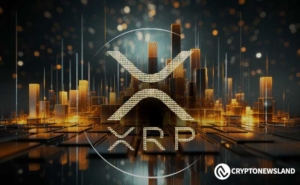South Korean stocks ride crypto wave as new president backs won-based tokens
South Korean equities have surged following President Lee Jae-myung’s pledge to permit cryptocurrency assets backed by the won. This has driven intense interest among retail investors in companies associated with digital currency projects.
The benchmark Kospi Composite index has gained nearly 30% this year, making South Korea Asia’s best-performing market in the first half.
According to the Financial Times , stocks associated with the Bank of Korea’s digital currency initiatives have experienced significant price fluctuations. While LG CNS shares rose by about 70% in June before pulling back due to profit-taking, Kakao Pay shares more than doubled.
Fintech stocks get hold of speculative attention
Kosdaq-listed companies have seen major moves based on stablecoin connections. Fintech security firm Aton jumped 80% while mobile game producer ME2ON tripled after its subsidiary launched a dollar-pegged stablecoin for casino applications.
The retail enthusiasm has driven outstanding margin loans to Won20.5 trillion ($15 billion), according to Korea Financial Investment Association data. Investors are increasing leverage to chase gains despite the government not yet announcing detailed cryptocurrency policies.
Expectations intensified following Lee’s appointment of Kim Yong-beom, a digital token advocate, as chief policy adviser. A parliamentary bill proposed this month would allow companies with Won500 million in equity capital to issue won-based stablecoins.
South Korea hosts one of the world’s most active crypto markets, with approximately 20% of the population trading digital assets. USD-pegged stablecoins reached ₩57 trillion in trading volume during the first quarter, prompting the Bank of Korea to accelerate its preparations for digital currency.
Banks, brokerages, and fintech companies are showing strong interest in stablecoin issuance, though the government has not determined licensing requirements or timelines. “We are keen to do the business, but we are watching out for where the government draws the line in terms of regulation,” said a fintech industry executive.
Bank of Korea Governor Rhee Chang-yong has voiced concerns about non-bank entities issuing won-pegged stablecoins. He also cited potential impacts on capital flows and the effectiveness of monetary policy.
Disclaimer: The content of this article solely reflects the author's opinion and does not represent the platform in any capacity. This article is not intended to serve as a reference for making investment decisions.
You may also like
Fed Opens Up Direct Payment Pathway for Cryptocurrency Firms
In Brief The Fed introduces a new payment model for cryptocurrency firms. Waller's proposal emphasizes narrow banking for stablecoin issuers. The plan balances regulatory, liquidity, and competitive aspects.

XRP Eyes $2.90 Breakout as Ripple’s Prime Strategy Sparks Bullish Momentum

SHIB Struggles to Stay Afloat as Selling Pressure Mounts — What Next for Shiba Inu?

